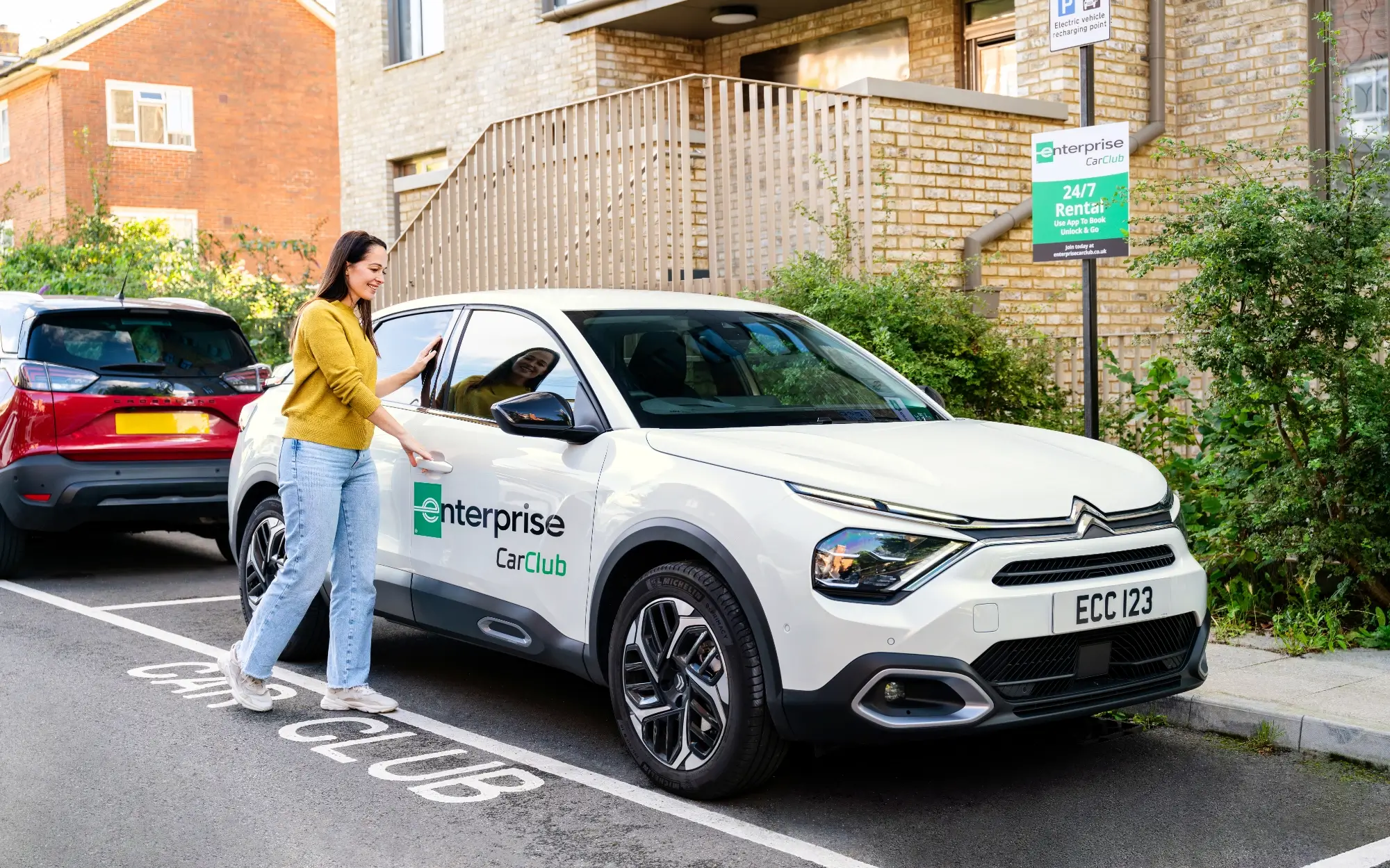Pay per trip car clubs allow individuals and organisations to have access to a car without being tied to ownership. Through years of ongoing research we have found that this cuts costs and mileage while boosting use of public transport and active travel.
Car clubs started with informal car clubs. 1999 saw the first formal commercial car clubs charging by the hour and by distance. The sector has grown considerably since and continues to grow, with member numbers at an all time high.

* Anyone who has joined, renewed their membership or used a car club in the last 12 months
Car clubs provide socially inclusive, low emission mobility which helps to break dependency on private car ownership.
At the same time, they help policy makers to meet targets at local, regional and national levels, including emissions reduction, reduce congestion, improvements to air quality and encouraging individuals to increase their use of sustainable modes.
Research by CoMoUK in 2024, found that up to 7.2 million households in England and Wales, or 29 per cent of the total, could feasibly use car clubs which could cut the number of car kilometres driven each year by 1.8 billion, as well as leading to 1.6 million fewer cars being on the roads.
Car clubs are leading the way with the conversion to electric vehicles. As well as reducing emissions, electric car clubs provide a more affordable alternative to ownership or leasing. This research looks into the costs savings between the options.

While year upon year we consistently see an increase in membership and scheme usage where services remain in place, the potential that shared transport has to effect more meaningful change is limited by two key factors. The ability for services to be made available to prime users without provision and the need to address barriers to adoption from non-users.
In this report, CoMoUK has set out to understand more about users, non-users and the barriers faced to the spread of car clubs and bike share in Scotland.

Read more about the work being done at CoMoUK to improve the provision for disabled people within the world of shared transport.
